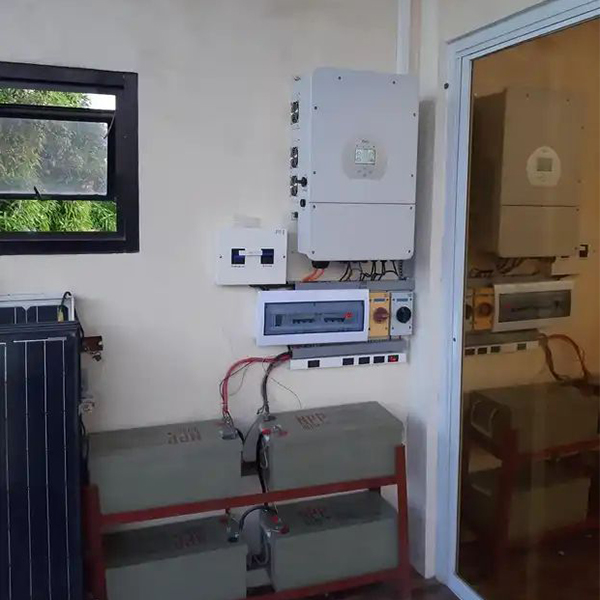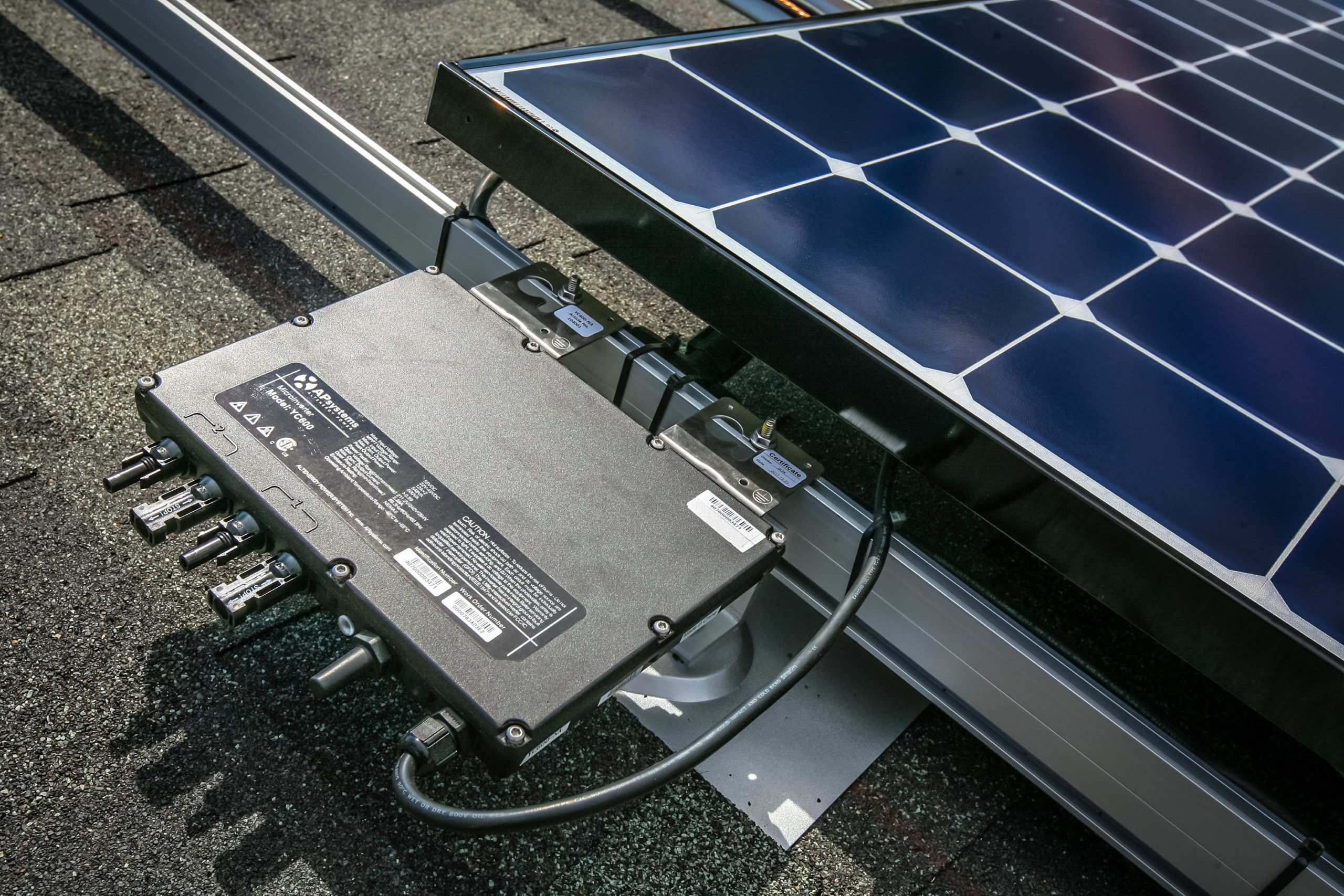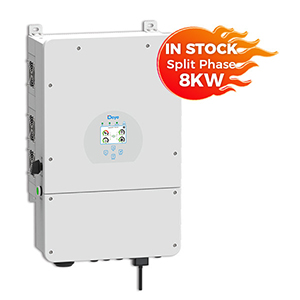Key Functions of Hybrid Inverters

Hybrid inverters excel at energy conversion. They transform the direct current (DC) power from your solar panels into alternating current (AC) power. This AC power is what your home appliances use. By doing this, hybrid inverters ensure that the solar energy you collect becomes usable electricity. They also integrate seamlessly with both solar panels and battery systems. This integration allows you to harness solar energy efficiently and store any excess for later use.
Energy Management
Energy management is another key function of hybrid inverters. They distribute energy smartly across your home or business. This smart energy distribution ensures that you use energy where it’s needed most. Hybrid inverters also offer load management capabilities. They help you manage the energy load by prioritizing essential appliances during peak times. This capability optimizes your energy usage and reduces waste.
Storage Control
Hybrid inverters provide excellent storage control. They manage the charging and discharging of your batteries. This management ensures that your batteries charge when solar energy is abundant and discharge when needed. Hybrid inverters also optimize energy storage. They make sure that you store energy efficiently, maximizing the use of your solar power. This optimization helps you maintain energy independence and reliability.
Grid Adaptability
Hybrid inverters offer remarkable grid adaptability. They can operate in both grid-tied and off-grid modes. In a grid-tied setup, you connect your system to the main power grid. This connection allows you to draw electricity from the grid when needed. You can also send excess energy back to the grid. In off-grid mode, you rely solely on your solar panels and batteries. This mode provides complete energy independence.
During power outages, hybrid inverters ensure a seamless transition. They automatically switch to battery power when the grid fails. This quick response keeps your essential appliances running. You won’t experience any interruption in power supply. This feature enhances your home’s resilience against unexpected blackouts.
Protection Features
Hybrid inverters come equipped with essential protection features. They safeguard your system from overloads and short circuits. These protections prevent damage to your electrical devices. They also ensure the longevity of your solar setup.
Voltage and frequency regulation is another critical feature. Hybrid inverters maintain stable voltage levels. They also regulate the frequency of the electricity supplied. This regulation ensures that your appliances receive consistent power. It protects them from potential harm caused by voltage fluctuations.
Benefits of Hybrid Inverters
Energy Independence
Hybrid inverters significantly reduce your reliance on the grid. By storing excess solar energy in batteries, you ensure a steady power supply even when the sun isn’t shining. This stored energy provides backup power during outages, keeping your essential appliances running. You gain peace of mind knowing that your home remains powered, regardless of grid failures.
Enhanced Utilization
Maximizing solar energy use becomes effortless with hybrid inverters. They efficiently convert and store solar power, ensuring you make the most of your solar panels. You retrieve stored energy when needed, optimizing your energy consumption. This efficient energy storage and retrieval process helps you lower electricity bills and increase your home’s energy efficiency.
Grid Interaction
Hybrid inverters offer opportunities for grid interaction. You can sell excess energy back to the grid, creating an additional revenue stream. This process not only benefits you financially but also supports the broader energy community. Additionally, you can participate in demand response programs. These programs allow you to contribute to grid stability by adjusting your energy usage during peak times. Your involvement helps balance the energy supply and demand, promoting a more sustainable energy future.
Comparison with Other Inverter Types

Differences in functionality and application
Hybrid inverters and traditional inverters serve different purposes. You use hybrid inverters to manage both solar energy and battery storage. They allow you to store excess energy for later use. Traditional inverters, on the other hand, only convert solar energy into usable electricity. They do not offer storage capabilities. This difference makes hybrid inverters more versatile. You can use them in various applications, including off-grid systems.
Cost and efficiency considerations
When considering cost, hybrid inverters often have a higher initial price. However, they provide long-term savings by reducing your reliance on the grid. You can store and use solar energy efficiently, lowering your electricity bills. Traditional inverters might cost less upfront. Yet, they lack the energy management features of hybrid inverters. This limitation can lead to higher energy costs over time. You should weigh these factors when choosing an inverter type.
Hybrid vs. Battery Inverters
Integration with solar systems
Hybrid inverters integrate seamlessly with solar systems. They manage both solar energy conversion and battery storage. This integration allows you to maximize your solar energy use. Battery inverters, however, focus solely on managing battery storage. They do not convert solar energy into usable electricity. You need a separate solar inverter to handle energy conversion. This separation can complicate your solar setup.
Flexibility and scalability
Hybrid inverters offer greater flexibility and scalability. You can easily expand your system by adding more solar panels or batteries. This adaptability makes hybrid inverters suitable for growing energy needs. Battery inverters, in contrast, limit your options. They require additional components for system expansion. This limitation can hinder your ability to scale your energy system efficiently. You should consider your future energy needs when selecting an inverter.
Installation Considerations
System Compatibility
Compatibility with existing solar setups
When installing hybrid inverters, you must ensure compatibility with your current solar setup. Hybrid inverters should integrate smoothly with your existing solar panels. This integration allows you to maximize the efficiency of your solar energy system. Check the specifications of your solar panels and the inverter to confirm they work well together. Proper compatibility ensures optimal performance and energy conversion.
Battery and grid connection requirements
Hybrid inverters require specific connections to batteries and the grid. You need to ensure that your battery system matches the inverter’s requirements. This match guarantees efficient charging and discharging processes. Additionally, verify the grid connection specifications. Proper grid connection allows you to send excess energy back to the utility. Meeting these requirements ensures a seamless energy flow and maximizes your system’s potential.
Cost and Maintenance
Initial investment and long-term savings
Investing in hybrid inverters involves an initial cost. However, this investment leads to significant long-term savings. By reducing reliance on the grid, you lower your electricity bills. Hybrid inverters allow you to store and use solar energy efficiently. This efficiency translates into financial savings over time. Consider the initial cost as a step toward greater energy independence and reduced utility expenses.
Maintenance needs and serviceability
Maintaining hybrid inverters is crucial for their longevity and performance. Regular maintenance ensures that your system operates efficiently. You should schedule periodic checks to assess the inverter’s condition. Address any issues promptly to prevent potential problems. Hybrid inverters are generally serviceable, allowing for repairs and upgrades. Keeping your system in good condition enhances its lifespan and reliability.
Hybrid inverters offer you a range of key functions and benefits. They efficiently convert and store solar energy, manage energy distribution, and provide grid adaptability. These features enhance your energy independence and reduce reliance on the grid. Looking ahead, hybrid inverters will play a vital role in advancing renewable energy solutions. They will help you maximize solar energy use and contribute to a sustainable future. Consider integrating hybrid inverters into your energy management strategy. They provide a reliable and efficient way to harness and utilize solar power effectively.
Post time: Nov-21-2024

